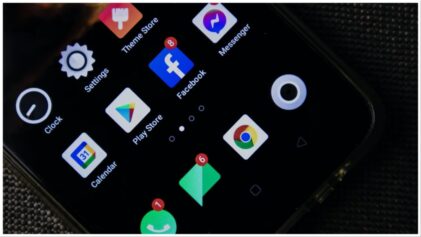Google Inc. Chief Executive Larry Page on Wednesday made a surprise appearance at the Internet company’s annual conference for software developers in San Francisco, as he and other executives unveiled several changes to its software lineup.
Page’s appearance came a day after disclosing he had a rare case of vocal cord paralysis that has hurt his ability to speak. As Page spoke on stage clearly and without difficulty for nearly an hour about how technology can improve people’s lives, Google’s share price topped $900 for the first time to end the day at $915.89, up nearly 50 percent over the past year. Google’s market capitalization also blew past the $300 billion mark for the first time.
“I feel I should have done it sooner,” Page said about his Tuesday health disclosure as he took questions from an audience of 6,000 software developers on issues such as privacy and Google’s role in the developing world.
The question-and-answer session with Page capped a relatively muted keynote address compared with last year’s Google developer conference, where the company debuted its Google Glass wearable-computing device through a live demonstration involving skydivers, plus other hardware.
Google on Wednesday unveiled new products and services including a paid subscription music-streaming service and a forthcoming mobile-app store for school teachers. But it mainly showcased improvements to existing Web services, such as Google Maps and its vaunted Web-search engine.
Google also said more than 900 million devices powered by its Android mobile operating system had been activated worldwide, up from 400 million a year ago and 100 million two years ago. Dozens of hardware manufacturers use Android to power smartphones and tablets, which come preloaded with Google’s revenue-generating services such as Web search, YouTube and Google Maps, among others.
During Page’s appearance, he lamented the “negativity” surrounding press coverage of competition among technology giants such as Google, yet criticized companies such as Microsoft Corp. for integrating a Google messaging service into its Outlook email service but not allowing Google to integrate Microsoft into Google’s email service. “The web is probably not as advancing as much as it should be” because of such actions by Microsoft, he said.
Read More: online.wsj.com


